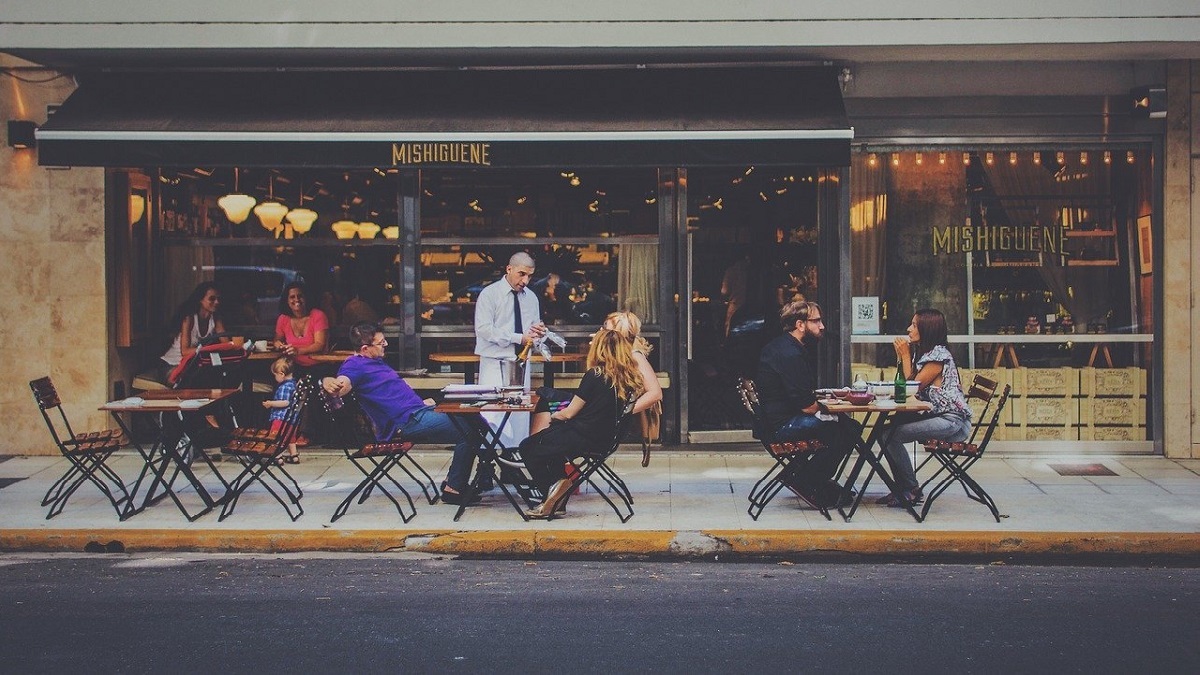Because rates of outdoor transmission are lower, people have enjoyed eating outdoors during the pandemic. | stock photo
Because rates of outdoor transmission are lower, people have enjoyed eating outdoors during the pandemic. | stock photo
As the COVID-19 pandemic continues throughout the U.S. and wintertime gets closer, restaurant owners and workers are about to encounter a new problem: Will anybody want to dine outside when the temperatures get colder?
Because the coronavirus reportedly does not spread as easily from person to person outside as it does inside, restaurants with outdoor seating have been able to operate at a higher capacity than restaurants that operate strictly indoors.
During WJR's "The Paul W. Smith Show," Detroit restaurateur Joe Vicari said it is a critical problem all restaurants have to solve.
“You have to have people feel comfortable coming in, knowing that you're doing everything possible to make people safe,” said Vicari, whose Joe Vicari Restaurant Group has served the Detroit area for 30 years. “And if you do that, I think they're going to come back because there's not a lot to do. You know, going out to restaurants is certainly, for a lot of people, a form of enjoyment, a form of meeting people and interacting with people.”
One of Vicari’s restaurants recently put up a tent that holds up to 120 people and ordered heat lamps. He said the Oakland County Health Department told him he could keep it up until the end of November.
One way Vicari said Gov. Gretchen Whitmer could help is by allowing banquet halls to open for dining and allowing more than 10 people to gather in one place.
“There are so many catering facilities that are large enough that they can social-distance, and they can make people safe and comfortable, and let people have wedding showers, small weddings,” Vicari said. “I’m not saying for a thousand people, but how about 50? How about 100?”
Making customers feel safe is the bottom line, and Vicari said it is important for all restaurants to do that so people don’t get turned off by the idea of dining out altogether.
He said restaurants need to practice social distancing indoors and have their staff wear facial coverings, because practices like those will become more noticeable if customers do not have the option to eat outdoors, which is going to happen sooner than later due to the weather.
“We've taken out 50% of our seats,” Vicari said. “So some restaurants have not. You know, some restaurants you walk in and nothing's changed, and they're not doing the right thing. But the majority of them are, and if they're not doing the right thing, then you walk in and you walk out and you go to a different restaurant.”

 Alerts Sign-up
Alerts Sign-up